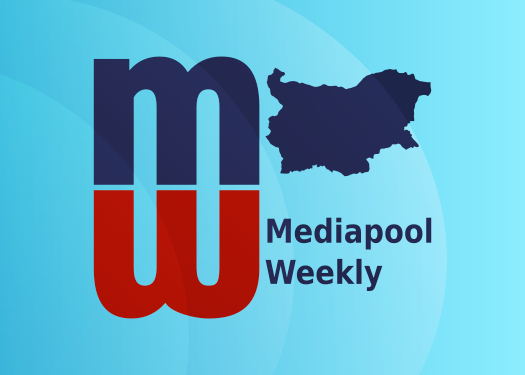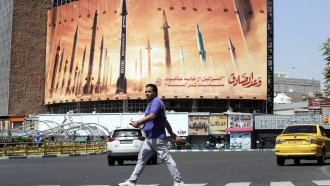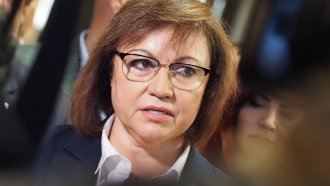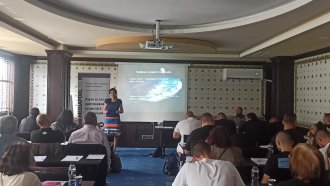Top stories:
Parliament passes final vote to cut state subsidies for political parties

The state subsidies for political parties will be 1 lev per vote, Parliament decided Thursday. The final vote on the controversial bill which cuts the state subsidy from 11 leva per vote to one lev per vote was scheduled for last week but got postponed at the last minute. This Thursday the MPs approved the bill with the votes of GERB, The Movement for Rights and Freedoms (DPS), ATAKA and VOLYA. The largest parliamentary opposition, the Bulgarian Socialist Party voted against, and the other two coalition right-wingers (apart from ATAKA), NFSB and VMRO voted to abstain.
BSP, NFSB, and VMRO hold the shared position that state subsidies should be lower, but that one lev is a radical move which will inevitably make the parties completely dependent on private financing. The three parties have also stressed that these amendments, which have the potential to change the political process in Bulgaria on a fundamental level, have not gone through a wide public debate at all. GERB entirely ignored these voices for the brief time the bill was going through the process of ratification.
Former TV show host Slavi Trifonov, about whom many speculate has a long-standing ambition to enter politics, raised the question of the state subsidies three years ago. He was the one who proposed a one-lev subsidy and turned the public’s attention to the issue. It looked like a PR stunt at first but Trifonov got enough signatures to organize a referendum. The votes in favor of a one-lev subsidy were more than those against, but the turnout was lower than the legal threshold which legitimizes the vote. Therefore, the initiative stopped there. Trifonov recently announced that the parties have been getting 13 leva per vote instead of the 11, provided by law. The reason was an error in the method for counting the votes. Parliament quickly adopted a plan to correct the error and for the parties to return the overpaid amounts, but GERB doubled down and put the one-lev subsidy on the table again, to be processed and passed through Parliament at lightning speed.
The next crucial step in this radical and swift reform was to allow unlimited private funding from businesses and private persons. MPs passed DPS’s proposal with the same majority. The bill is very problematic as it provides no limits for who may or may not fund political parties. This means that businesses, which rely on state contracts and concessions, for example, may fund political parties. In a nutshell, businesses, which had to find ways to give money under the table, don’t need to anymore. There is a legal procedure for it. The bill, whose authors continue to describe as the “American model” – a notion deprived of a basis in reality - will legitimize some very bad practices in Bulgarian politics, while clogging the funding to the opposition or otherwise “inconvenient” entities, both political and private.
GERB was against cutting the subsidies until just recently. They were firmly against the idea during the referendum as well. But these days GERB points to the referendum results as justification for their position. Although DPS maintains that it is against cutting the subsidies at all, the additional rules, for unlimited private funding create the best-case scenario for DPS. They legitimize the very core of the way DPS has effectively governed the country for decades: through hard-lined political and private pressure thanks to its “rings of companies “, as their honorary leader calls them. DPS has kept both political entities pressured through its connected businesses and the private sector through its political influence. This has been the long-standing model, which finally got the official state seal.
The move is a heavy blow to the opponents of the unofficial GERB-DPS coalition, especially to the smaller parties. In financial terms, GERB has saved up 23 million leva from subsidies over the years and will not be affected by the new rules, at least not in the foreseeable future. The second and third largest parties – BSP and DPS – have 6 million in savings each. But, DPS has almost unlimited access to private recourses and hardly relies on state subsidies much. In fact, the most likely future political parties’ backers will be DPS-related companies. Most other parties, especially non-parliamentary ones will fall into a financial crisis almost immediately. Unless, of course, they are mainstream-safe. At the same time, businesses will probably abstain from funding opposition parties because it will trigger a negative response from those in power.
Overall, the framework of the bill seeks to legitimize a long-standing practice of influence peddling and illegal forms of lobbying. The leading field here is private procurements, concessions, and other state contracts. In addition, it will ease the widespread funding of political parties from shady to downright mafia-like enterprises. In a nutshell, the two bills not only provide the legal guarantee for political parties to depend on the oligarchy, it serves as a giant amplifier to this status quo.
Emil Koshlukov to head the Bulgarian National Television
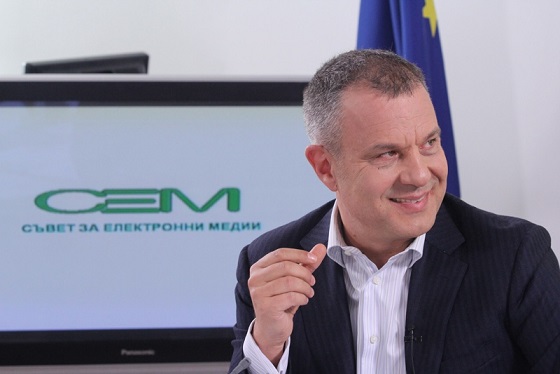
In a no-surprise vote in the Council for Electronic Media, Emil Koshlukov was chosen to become the new general director of the Bulgarian National Television. Koshlukov’s nomination was a government-favorite.
Koshlukov, a former MP from NDSV, was the program director of BNT 1. Before that he was an anchor in a network, close to Delyan Peevski, Channel Three, before becoming the executive director of the since-bankrupt TV7 and News7 networks. Both were heavily backed by the since-collapsed Corporate Commercial Bank (KTB) at a time when its former chief, Tsvetan Vassilev and Delyan Peevski were in close partnership.
Koshlukov was acting general director in the recent months, after the former director was removed due to having been convicted of a DUI.
As Mediapool wrote, the votes in favor for Koshlukov seemed predetermined. During the hearings from the post he made spectacle of a speech, announcing that the network has accumulated 37 million leva in debs. The larger chunk of those are for copywrite fees for programs, which Koshlukov made clear he feels are unnecessary and a waste.
The network is nearly bankrupt as a result. And while Koshlukov was keen on blaming it all on the former director, the question of why he didn’t raise these issues earlier, as program director of the largest network in BNT, BNT 1, remains.
In an official answer to Mediapool he evades the question on a technicality: that as program director his job is to fulfill the Board’s decisions on external programming. which is vague at best. As program director he has the means, authority and prerogative to say what the network should and should not buy the rights to air.
The efforts to make Koshlukov head of BNT date back a few years ago. He tried for the post then, attaching an official reference from ATAKA TV, proving he has the necessary experience. He did not get it because ATAKA TV is owned by a political party, which meant political affiliation, which made him ineligible. The general director, Konstantin Kamenarov, invited Koshlukov to take the post of program director of BNT 1: a position, which he had just established, seemingly especially for Koshlukov.
But Kamenarov had a weakness: a DUY from 2016. If convicted he couldn’t keep the post. It’s not a far-reaching speculation that such a record could easily either quickly enter court proceedings, or be buried in a burеaucratic standby. The proceedings got underway though. He got the conviction, was removed from office and Koshlukov took over as acting director, while SEM started the new procedure for general director, which Koshlukov would eventually win.
From this angle, everything has fallen quite incredibly into place for Koshlukov.
By refusing to support Kristalina Georgieva Borissov lost all chances of a high-level Bulgarian appointment in the EU

Bulgaria will not have a high-ranking official in the EU, although it had a chance to fight for one. Kristalina Georgieva, who is the former deputy-head of the European Commission, and current CEO of the World Bank was nominated to become the next High Representative of the Union for Foreign Affairs and Security Policy
But PM Boyko Borissov blocked Georgieva’s nomination, citing other priorities.
Borissov announced publicly that he will not support Gerogieva in her bid for the high post because for him Bulgaria’s current commissionaire Maria Gabriel and her “real portfolio” are more important. Maria Gabriel in in charge of digitalization in the EU.
The director of the European Council on Foreign Affairs’ Bulgarian desk, Vessela Cherneva spoke to Mediapool and is convinced that “Bulgaria could have gotten a better portfolio than the digitalization, which Borissov requested in advance.”
“The question is, what are the Bulgarian government’s goals and ambitions of. If it looks to “lay low” and just get hold of some chunk of the EU budget, and this is as far as its ambitions go, then it likely succeeded. Many collogues are asking themselves how is it possible that Bulgaria does not wish to be an active participant in forming the new EU. The voice of the region will definitely be a weak one”, she added.
At the same time Borissov supported PES’s leader Sergey Stanishev’s nomination for speaker of the European Parliament, declaring it “an honor and great pride”. He said GERB MPs will support him for the post. This support did not get a chance to become reality though, because the nomination did not get the necessary backing within the socialists in the EP.
In other news:
Democratic Bulgaria calls for the immediate removal of Stoyan Mavrodiev

The non-parliamentary liberal opposition, Democratic Bulgaria has called for the immediate removal of the head of the Bulgarian Bank for Development Stoyan Mavrodiev. DB accuse Mavrodiev for “turning the bank into an appendage to the oligarchic food chain that is Borissov-Dogan-Peevski-Tsatsarov”
The position is a reaction to recent reporting by Capital Weekly that the BBD backed a new company, close to the honorary leader of the Movement of Right and Freedoms (DPS) Ahmed Dogan, with 150 million leva.
“Under Stoyan Mavrodiev’s management … the bank gives out big loans to companies, which are controlled by suspicious oligarchs”, DB write in their official position.
The bank does not give an account about whom it gives out loans to, including to Parliament.
The bank manages 3 billion leva public money but is virtually unaccountable for how it spends it and which businesses it funds and why.
Anticorruption Commission closes investigation against EMP Maria Gabriel for cheap apartment rent

The Anticorruption Commission closed the investigation against European Parliament PM Maria Gabriel for renting a municipal-owned apartment for a preferential price. The story broke two years ago when the civil society organization, BOEC, which specializes in corruption, informed the commission of the case. The body, responsible for countering corruption and conflict of interest concluded the case is irrelevant to its purpose, defining the position of European MP as not a public position.
Maria Gabriel signed the lease with the municipal company Sofia Estates (Sofijski Imoti) back in 2010. The company owns a number of real estates across the city, including the property in question. A 128 square meter flat, located in one of the most upscale neighborhoods, Lozenets. Gabriel was already a European MP when she signed the lease of 400 leva per month. The average price for a flat this size in this area at the time was more than twice that.
At the time Gabriel told reporters from the A-Specto magazine that the deal is legitimate as the apartment was only plastered and needed to be renovated and furnished, which she had to do, according to the lease.
“This is the only thing, which I have ever requested as help, nothing more. I didn’t want to take an apartment, to benefit from my position in any way. On the contrary, I only needed space to store part of my belongings”, she said back when the story broke.
Only a fool can look for conflict of interest in ApartmentGate: Ex Culture Minister Vezhdi Rashidov

“Only a stupid person can imagine that they could discover a conflict of interest in this.”, Vezhdi Rahsidov, former minister of culture told bTV.
The comment is about the recent shutdown of the Anticorruption Commission’s probe into high ranking GEBR officials having bought luxury apartments for less than a fourth of the market price. Rashidov himself is one of the politicians named in the scandal, known as ApartmentGate.
“There is no conflict of interest in the low prices. There is market economy”, the sculptor and former minister went on to explain.
He finished by shifting the focus to unspecified “others”:
He said he had come across the tax returns of “people who gladly comment extensively the ApartmentGate scandal.”
Asked how he came across such documents he simply replied:
“I get them in my mail.”
PM Boyko Borissov streamed backroom talks with Timmermans live on Facebook
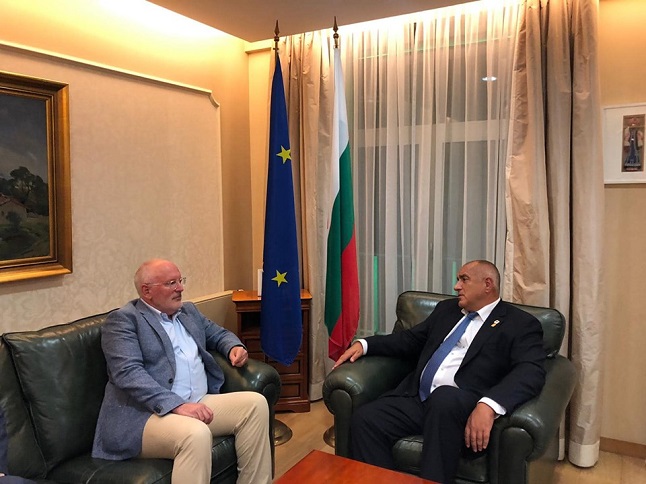
PM Boyko Borissov was initially against Hans Timmerman’s nomination for president of the European Commission. After all, they are members of opposing political families. But Borissov apparently shifted his views on Monday and decided to sit down and talk to Timmerman about what it would take to get his support. Borissov made clear right from the star that this in a negotiation and named his price: help Bulgaria enter Schengen and drop the Cooperation and Verification Mechanism, which monitors Bulgaria’s anti-corruption efforts.
For the decade the CVM has monitored Bulgaria, and issued important recommendations – time and time again – little to no progress has been made to meet them in the decade-long Borissov leadership. This government has always been eager to get rid of the mechanism, and might soon achieve this goal.
As for Schengen the country has fulfilled the formal requirements. But the EU will not allow Bulgaria enter unless it makes substantial progress in the fight against corruption and rule of law, which it clearly has no intention of doing.
Borissov live-streamed the meeting on his Facebook page, which made international headlines. Borissov had named his terms and the two exchanged some pleasantries – Borissov: “We have worked wonderfully over the years.”; Timmermans: “I have always expressed my admiration for what you are doing in the fight against organized crime in your country. We have had many frank discussions. That’s the basis upon which I value our friendship”. Then Timmermans turned to the camera and said “I am not sure we should be recording all of this”. At which point the video ended.
Timmermans ultimately lost the nomination but the stream gave a rare glimpse into what backroom talks look like during these biddings.
Ключови думи
За честна и независима журналистика
Ще се радваме, ако ни подкрепите, за да може и занапред да разчитате на независима, професионална и честна информационно - аналитична медия.
 0 коментара
0 коментара
Екипът на Mediapool Ви уведомява, че администраторите на форума ще премахват всички мнения, съдържащи нецензурни квалификации, обиди на расова, етническа или верска основа.
Редакцията не носи отговорност за мненията, качени в Mediapool.bg от потребителите.
Коментирането под статии изисква потребителят да спазва правилата за участие във форумите на Mediapool.bg
Прочетете нашите правила за участие във форумите.
За да коментирате, трябва да влезете в профила си. Ако нямате профил, можете да се регистрирате.
